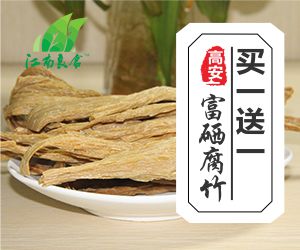HYQVIA [Immune Globulin Infusion 10% (Human) with Recombinant Human Hyaluronidase], the Only up to Once Monthly (every 2, 3 or 4 weeks) Subcutaneous Immunoglobulin (SCIG) Infusion to Treat CIDP, Can Be Administered by a Healthcare Professional or Self-Administered after Appropriate Training
Approval Based on Phase 3 ADVANCE-CIDP 1 Study Demonstrating a Statistically Significant Difference in Relapse Rate in Favor of HYQVIA Versus Placebo at 6 Months
CIDP, a Rare Neuromuscular Disorder, is a Progressive, Relapsing Peripheral Nervous System Condition Often Leading to Debilitating Symptoms Such as Symmetric Weakness or Loss of Feeling in the Arms and Legs
OSAKA, Japan & CAMBRIDGE, Mass.--(BUSINESS WIRE)--Takeda (TSE:4502/NYSE:TAK) today announced that the U.S. Food and Drug Administration (FDA) has approved HYQVIA® [Immune Globulin Infusion 10% (Human) with Recombinant Human Hyaluronidase] for the treatment of chronic inflammatory demyelinating polyneuropathy (CIDP) as maintenance therapy to prevent the relapse of neuromuscular disability and impairment in adults. HYQVIA first received approval in the U.S. in 2014 for the treatment of primary immunodeficiency (PI) in adults, which has since been expanded to include children 2-16 years old.1
HYQVIA is the only FDA-approved combination of immunoglobulin (IG) and hyaluronidase, which makes it a facilitated subcutaneous immunoglobulin (SCIG) infusion. For adults with CIDP, HYQVIA can be infused up to once monthly (every two, three or four weeks) due to the hyaluronidase component, which facilitates the dispersion and absorption of large IG volumes in the subcutaneous space between the skin and the muscle. Because it is delivered subcutaneously, HYQVIA can be administered by a healthcare professional in a medical office, infusion center or at a patient’s home. In addition, it can be self-administered after appropriate patient or caregiver training.1
“With the FDA approval of HYQVIA for CIDP, which builds on our expertise in rare neuroimmunological and neuromuscular disorders, we can now offer a personalized maintenance treatment option for adults with this debilitating disease,” said Giles Platford, president of Takeda’s Plasma-Derived Therapies Business Unit. “Research and clinical experience have shown that IG therapy is effective as maintenance treatment in adults with CIDP, and we hope that this approval for HYQVIA is the first of several around the world as we strive to deliver our broad and diverse IG portfolio to more people with complex neuroimmunological diseases.”
This approval is based on results from a randomized, double-blinded, placebo-controlled study (ADVANCE-CIDP 1) and a single-arm, open-label, extension study (ADVANCE-CIDP 3) that evaluated the efficacy and safety of HYQVIA as a maintenance therapy in adults with CIDP. The efficacy evaluation included 122 adults from ADVANCE-CIDP 1 with a confirmed diagnosis of CIDP and who had remained on a stable dosing regimen of intravenous immunoglobulin (IVIG) therapy for at least three months prior to screening. The analysis of the primary endpoint demonstrated a statistically significant difference between the relapse rates in the HYQVIA group (N=57, 14.0%) compared to the placebo group (N=65, 32.3%) (p=0.0314). The treatment difference of -18.3% (two-sided 95% CI: -32.1%, -3.1%) indicated that HYQVIA demonstrated superiority over placebo in preventing relapse of CIDP.1
The safety of HYQVIA in adults with CIDP was evaluated across ADVANCE-CIDP 1 (N=62) and ADVANCE-CIDP 3 (N=79). The most common adverse reactions observed in >5% of study subjects in clinical studies of HYQVIA for CIDP were local reactions, headache, pyrexia, nausea, fatigue, erythema, pruritus, increased lipase, abdominal pain, back pain, and pain in extremity.1
CIDP is a rare, acquired, immune-mediated neuromuscular disorder affecting the peripheral nervous system.2,3 It is typically characterized by progressive, symmetric symptoms such as weakness, tingling or loss of feeling in distal and proximal limbs, loss of reflexes and difficulty walking.3 Because its symptoms may overlap with other rare, neuromuscular conditions, CIDP is often misdiagnosed.4 The mechanism of action of IG in the treatment of CIDP in adults has not been fully elucidated but may include immunomodulatory effects.1 The role of IG therapy as maintenance treatment in CIDP has been well-established and is the guidelines-based standard of care for this complex and heterogeneous condition.5 However, there are aspects of IVIG treatment that can be challenging for patients such as long treatment duration associated with high IG volumes, potential for venous access challenges, and infusion setting limitations.5
“While it is considered the standard-of-care for maintenance treatment of adults with CIDP, IVIG infusions may be challenging for some patients and their caregivers,” said Lisa Butler, executive director, GBS-CIDP Foundation International. “We’re excited that this therapy could offer some adults with CIDP an alternative subcutaneous option that may address some of these challenges and help personalize treatment.”
HYQVIA is now available as a maintenance therapy for adult patients with CIDP in the U.S. In December 2023, Takeda announced that the European Medicines Agency’s (EMA) Committee for Medicinal Products for Human Use (CHMP) has recommended the approval of HYQVIA as maintenance therapy in patients with CIDP after stabilization with IVIG. The European Commission (EC) will consider the CHMP positive opinion when determining the potential marketing authorization for HYQVIA for CIDP throughout the European Union.6
About HYQVIA
HYQVIA® [Immune Globulin Infusion 10% (Human) with Recombinant Human Hyaluronidase] is a liquid medicine containing Recombinant Human Hyaluronidase and immunoglobulin (IG) and is approved in the U.S. to treat adults and children two years of age and older with primary immunodeficiency (PI), and as maintenance therapy to prevent relapse of neuromuscular disability and impairment in adult patients with CIDP. It is also approved by the European Medicines Agency (EMA) as a replacement therapy in adults, children and adolescents with PI and with secondary immunodeficiency (SID) who suffer from severe or recurrent infections, ineffective antimicrobial treatment, and either proven specific antibody failure (PSAF) or serum IgG level of <4 g/L. HYQVIA is infused under the skin into the fatty subcutaneous tissue. HYQVIA contains IG collected from human plasma. IG are antibodies that maintain the body’s immune system. The hyaluronidase part of HYQVIA facilitates the dispersion and absorption of IG in the subcutaneous space between the skin and the muscle. HYQVIA is infused up to once a month (every two, three or four weeks for CIDP; every three or four weeks for PI).
About ADVANCE-CIDP 1 and ADVANCE-CIDP 3
ADVANCE-CIDP 1 was a Phase 3, multicenter, placebo-controlled, double-blinded study evaluating the safety, efficacy and tolerability of HYQVIA. The primary endpoint of the ADVANCE-CIDP 1 clinical trial was the proportion of subjects who experienced a relapse, defined as an increase of ≥1 point relative to the pre-subcutaneous (SC) treatment baseline score in two consecutive adjusted Inflammatory Neuropathy Cause and Treatment (INCAT) disability scores obtained less than seven days apart. Patients were randomized to receive either HYQVIA or placebo at the same dose and infusion frequency as their prior IVIG treatment (every two, three or four weeks) for six months or until withdrawal or relapse. Those who remained relapse free were offered HYQVIA treatment as part of ADVANCE-CIDP 3, which was an open-label extension clinical trial to assess the long-term safety, tolerability and immunogenicity of HYQVIA in participants with CIDP who completed ADVANCE-CIDP 1.
Further information about the ADVANCE-CIDP 1 and ADVANCE-CIDP 3 clinical trials is available at ClinicalTrials.gov under study identifiers NCT02549170 and NCT02955355, respectively.
HYQVIA U.S. Indication
HYQVIA is indicated for the treatment of primary immunodeficiency (PI) in adults and pediatric patients two years of age and older and for chronic inflammatory demyelinating polyneuropathy (CIDP) as maintenance therapy to prevent relapse of neuromuscular disability and impairment in adults. HYQVIA is for subcutaneous use only.
HYQVIA U.S. Important Safety Information
WARNING: THROMBOSIS
- Thrombosis may occur with immune globulin (IG) products, including HYQVIA. Risk factors may include advanced age, prolonged immobilization, hypercoagulable conditions, history of venous or arterial thrombosis, use of estrogens, indwelling vascular catheters, hyperviscosity, and cardiovascular risk factors. Thrombosis may occur in the absence of known risk factors.
- For patients at risk of thrombosis, administer HYQVIA at the minimum dose and infusion rate practicable. Ensure adequate hydration in patients before administration.
- Monitor for signs and symptoms of thrombosis and assess blood viscosity in patients at risk of hyperviscosity.
Contraindications
- History of anaphylactic or severe systemic hypersensitivity reactions to human IG
- IgA-deficient patients with antibodies to IgA and a history of hypersensitivity to human IG
- Known systemic hypersensitivity to hyaluronidase including Recombinant Human Hyaluronidase of HYQVIA
- Known systemic hypersensitivity to human albumin (in the hyaluronidase solution)
Warnings and Precautions
- Hypersensitivity: Severe hypersensitivity reactions may occur, even in patients who have tolerated previous treatment with human IG. If a hypersensitivity reaction occurs, discontinue infusion immediately and institute appropriate treatment. IgA-deficient patients with antibodies to IgA are at greater risk of developing potentially severe hypersensitivity reactions, including anaphylaxis.
- Thrombosis: Has been reported to occur following treatment with IG products, including HYQVIA and in the absence of known risk factors. In patients at risk, administer at the minimum dose and infusion rate practicable. Ensure adequate hydration before administration. Monitor for signs and symptoms of thrombosis and assess blood viscosity in patients at risk for hyperviscosity.
- Immunogenicity of Recombinant Human Hyaluronidase (rHuPH20): Non-neutralizing antibodies to the Recombinant Human Hyaluronidase component can develop. The clinical significance of these antibodies or whether they interfere with fertilization in humans is unknown.
- Aseptic Meningitis Syndrome: Has been reported with use of IG, including HYQVIA and may occur more frequently in females. The syndrome usually begins within several hours to two days following IG treatment. Conduct a thorough neurological exam on patients exhibiting signs and symptoms, to rule out other causes of meningitis. Discontinuing IG treatment has resulted in remission within several days without sequelae.
- Hemolysis: HYQVIA contains blood group antibodies which may cause a positive direct antiglobulin reaction and hemolysis. Monitor patients for signs and symptoms of hemolysis and delayed hemolytic anemia and, if present, perform appropriate confirmatory lab testing.
- Renal Dysfunction/Failure: Acute renal dysfunction/failure, acute tubular necrosis, proximal tubular nephropathy, osmotic nephrosis, and death may occur with intravenous (IV) use of IG products, especially those containing sucrose. Ensure patients are not volume depleted prior to infusion. In patients at risk due to pre-existing renal insufficiency or predisposition to acute renal failure, assess renal function before initiation and throughout treatment, and consider lower, more frequent dosing. If renal function deteriorates, consider discontinuation.
- Spread of Localized Infection: Do not infuse HYQVIA into or around an infected area due to potential risk of spreading a localized infection.
- Transfusion-Related Acute Lung Injury: Non-cardiogenic pulmonary edema may occur with IV administered IG. Monitor patients for pulmonary adverse reactions. If suspected, perform appropriate tests for presence of anti-neutrophil and anti-HLA antibodies in both product and patient serum. May be managed using oxygen therapy with adequate ventilatory support.
- Transmittable Infectious Agents: Because HYQVIA is made from human plasma, it may carry a risk of transmitting infectious agents (e.g. viruses, other pathogens). No cases of transmission of viral diseases or variant Creutzfeldt-Jakob disease (vCJD) have been associated with HYQVIA.
- Interference with Lab Tests: False positive serological test results and certain assay readings, with the potential for misleading interpretation, may occur as the result of passively transferred antibodies.
Adverse Reactions
The most common adverse reactions observed in >5% of patients in the clinical trials were:
Primary Immunodeficiency (PI): local adverse reactions including pain, erythema, edema, and pruritus, and systemic adverse reactions including, headache, antibody formation against Recombinant Human Hyaluronidase (rHuPH20), fatigue, nausea, pyrexia, and vomiting.
Chronic Inflammatory Demyelinating Polyneuropathy (CIDP): local reactions, headache, pyrexia, nausea, fatigue, erythema, pruritus, increased lipase, abdominal pain, back pain, and pain in extremity.
Drug Interactions
Passive transfer of antibodies may transiently interfere with the immune responses to live attenuated virus vaccines (e.g., measles, mumps, rubella, and varicella).
Use In Specific Populations
Pregnancy: Limited human data are available on the use of HYQVIA during pregnancy. The effects of antibodies to the Recombinant Human Hyaluronidase on the human embryo or fetal development are unknown. It is not known whether HYQVIA can cause fetal harm when administered to a pregnant woman or if it can affect reproductive capacity. HYQVIA should be given to a pregnant woman only if clearly needed.
For Full U.S. Prescribing Information, please visit: https://www.shirecontent.com/PI/PDFs/HYQVIA_USA_ENG.pdf
For European Union Summary of Product Characteristics, please visit: https://www.ema.europa.eu/en/medicines/human/EPAR/hyqvia
About Takeda
Takeda is focused on creating better health for people and a brighter future for the world. We aim to discover and deliver life-transforming treatments in our core therapeutic and business areas, including gastrointestinal and inflammation, rare diseases, plasma-derived therapies, oncology, neuroscience and vaccines. Together with our partners, we aim to improve the patient experience and advance a new frontier of treatment options through our dynamic and diverse pipeline. As a leading values-based, R&D-driven biopharmaceutical company headquartered in Japan, we are guided by our commitment to patients, our people and the planet. Our employees in approximately 80 countries and regions are driven by our purpose and are grounded in the values that have defined us for more than two centuries. For more information, visit www.takeda.com.
Important Notice
For the purposes of this notice, “press release” means this document, any oral presentation, any question and answer session and any written or oral material discussed or distributed by Takeda Pharmaceutical Company Limited (“Takeda”) regarding this release. This press release (including any oral briefing and any question-and-answer in connection with it) is not intended to, and does not constitute, represent or form part of any offer, invitation or solicitation of any offer to purchase, otherwise acquire, subscribe for, exchange, sell or otherwise dispose of, any securities or the solicitation of any vote or approval in any jurisdiction. No shares or other securities are being offered to the public by means of this press release. No offering of securities shall be made in the United States except pursuant to registration under the U.S. Securities Act of 1933, as amended, or an exemption therefrom. This press release is being given (together with any further information which may be provided to the recipient) on the condition that it is for use by the recipient for information purposes only (and not for the evaluation of any investment, acquisition, disposal or any other transaction). Any failure to comply with these restrictions may constitute a violation of applicable securities laws.
The companies in which Takeda directly and indirectly owns investments are separate entities. In this press release, “Takeda” is sometimes used for convenience where references are made to Takeda and its subsidiaries in general. Likewise, the words “we”, “us” and “our” are also used to refer to subsidiaries in general or to those who work for them. These expressions are also used where no useful purpose is served by identifying the particular company or companies.
Forward-Looking Statements
This press release and any materials distributed in connection with this press release may contain forward-looking statements, beliefs or opinions regarding Takeda’s future business, future position and results of operations, including estimates, forecasts, targets and plans for Takeda. Without limitation, forward-looking statements often include words such as “targets”, “plans”, “believes”, “hopes”, “continues”, “expects”, “aims”, “intends”, “ensures”, “will”, “may”, “should”, “would”, “could”, “anticipates”, “estimates”, “projects” or similar expressions or the negative thereof. These forward-looking statements are based on assumptions about many important factors, including the following, which could cause actual results to differ materially from those expressed or implied by the forward-looking statements: the economic circumstances surrounding Takeda’s global business, including general economic conditions in Japan and the United States; competitive pressures and developments; changes to applicable laws and regulations, including global health care reforms; challenges inherent in new product development, including uncertainty of clinical success and decisions of regulatory authorities and the timing thereof; uncertainty of commercial success for new and existing products; manufacturing difficulties or delays; fluctuations in interest and currency exchange rates; claims or concerns regarding the safety or efficacy of marketed products or product candidates; the impact of health crises, like the novel coronavirus pandemic, on Takeda and its customers and suppliers, including foreign governments in countries in which Takeda operates, or on other facets of its business; the timing and impact of post-merger integration efforts with acquired companies; the ability to divest assets that are not core to Takeda’s operations and the timing of any such divestment(s); and other factors identified in Takeda’s most recent Annual Report on Form 20-F and Takeda’s other reports filed with the U.S. Securities and Exchange Commission, available on Takeda’s website at: https://www.takeda.com/investors/sec-filings-and-security-reports/ or at www.sec.gov. Takeda does not undertake to update any of the forward-looking statements contained in this press release or any other forward-looking statements it may make, except as required by law or stock exchange rule. Past performance is not an indicator of future results and the results or statements of Takeda in this press release may not be indicative of, and are not an estimate, forecast, guarantee or projection of Takeda’s future results.
Medical Information
This press release contains information about products that may not be available in all countries, or may be available under different trademarks, for different indications, in different dosages, or in different strengths. Nothing contained herein should be considered a solicitation, promotion or advertisement for any prescription drugs including the ones under development.
_______________________
1 HYQVIA® [Immune Globulin Infusion 10% (Human) with Recombinant Human Hyaluronidase] U.S. Prescribing Information.
2 GBS CIDP Foundation International. Voice of the Patient Report. August 26, 2022. www.gbs-cidp.org. Accessed August 2022.
3 Dalakas MC. Nat Rev Neurol. 2011;7(9):507–17.
4 Broers MC, Bunschoten C, Nieboer D, Lingsma HF, Jacobs BC. Eur J Neurol. 2021;28(6):2065–2073.
5 Van den Bergh P, Van Doorn PA, Hadden RD, et al. Eur J Neurol. 2021;28(11):3556–3583.
6 European Medicines Agency. HyQvia 100 mg/mL solution for infusion for subcutaneous use Summary of Product Characteristics. https://www.ema.europa.eu/en/documents/product-information/hyqvia-epar-product-information_en.pdf.








